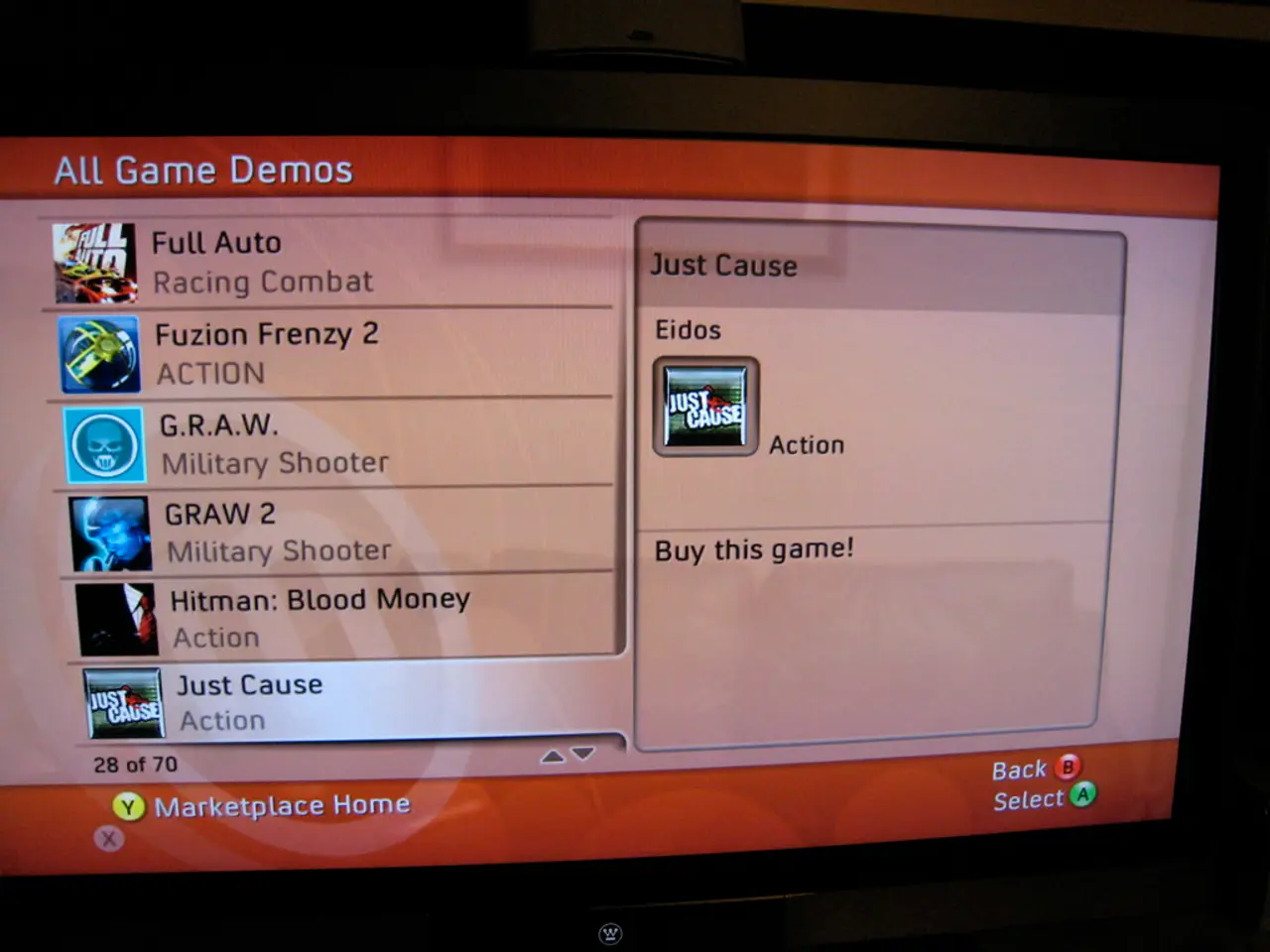Revitalize bouncing back: gaming sector rebounds from sales slowdown
In the ever-evolving world of gaming, the German market is experiencing a mix of challenges and growth. After a 6% decline in overall revenue in 2024, the industry is showing signs of recovery, with a 4% growth in the first half of 2025 [2][5].
Sales Trends
The decline in revenue was reflected in game sales, which dropped 6% year-on-year to €5.501 billion. Hardware sales fell more sharply by 10% to €2.939 billion. The shift towards digital purchases is evident, with around 70% of game purchases now digital in Germany, and nearly 99% of PC games bought digitally in 2024 [1][4].
Microtransactions and downloadable content (DLC) revenues dropped slightly by 3% to €4.58 billion in 2024. Full-price title sales (physical and digital) dropped significantly by 16%, down to €921 million [3].
Demographics and Consumer Behaviour
The gaming audience is steadily expanding across all age groups. On PC, microtransactions make up about 70% of revenue; on smartphones/tablets, microtransactions represent 98% of revenue, with full-price purchase nearly negligible [1][3].
Service-based gaming such as cloud gaming and subscriptions grew by 12% to €965 million, indicating a shift towards service models [1][3].
Industry Outlook and Predictions
The industry is facing pressures from changing consumption habits and requires stronger institutional support and adaptation to new business models to remain competitive internationally. Criticism of Germany’s support system for game development is prevalent, with 87% of companies surveyed believing Germany is poorly competitive as a game development location compared to other countries [3].
Gamescom and the Future
Despite these challenges, the future of gaming in Germany looks promising. Gerald Böse, CEO of Koelnmesse, has stated that this year's Gamescom will offer the greatest variety in its history [6]. The event, which attracted 335,000 people last year, including many cosplayers, is expected to set a new record with over 1,500 exhibitors from 72 countries [7].
The gaming industry is promoting games as something for the whole family, with 28% of gamers preferring to play online with others [8]. Many gaming fans also use the event to try out new games [9].
The proportion of gamers has increased from 42% in 2015 to the current 52%, with more than half (52%) of the German population being gamers according to a survey by the digital association Bitkom [10]. The average age of gamers is currently 39.5 years, an increase of 1.3 years from the previous year [11].
The sales of gaming hardware increased by 17% to around 1.2 billion euros, primarily due to the launch of the Nintendo Switch 2 console [12].
In conclusion, while the German gaming industry faced a revenue and company decline in 2024, digital and service-based gaming continue to grow, with 2025 showing initial recovery. Microtransactions dominate mobile and PC revenue, physical sales continue declining, and demographic expansion remains steady. Stronger government support and adaptation to evolving consumer preferences are seen as critical for future growth.
References: [1] Statista (2025) [2] GamesIndustry.biz (2025) [3] Develop-online.net (2025) [4] Newzoo (2024) [5] GamesIndustry.biz (2025) [6] Gamescom (2025) [7] Gamescom (2021) [8] YouGov (2024) [9] Gamescom (2021) [10] Bitkom (2025) [11] Statista (2025) [12] GamesIndustry.biz (2025)
Read also:
- Rapid Growth in Bio-based Polypropylene Sector Anticipated at a Compound Annual Growth Rate of 26.5% by 2034
- Business Performance Updates Progressing: Companies Anticipated to Make Significant Moves This Week (Feb 17, 2025)
- Jellyfish incapacitate France's largest nuclear facility, causing disruption.
- Unveiling a Scholarly Structure for Intelligent Management of Medication Assistance Programs








